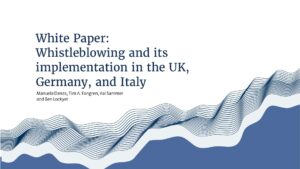EC Guidelines on passenger rights regulations in the context of the developing situation with Covid-19
Have you got a question?
The European Commission has today issued interpretative guidelines on EU passenger rights, including under Regulation (EC) 261/2004, in light of the unprecedented level of disruption to passenger routes caused by the Covid-19 pandemic. The key issues for airlines are over liability to pay fixed compensation, and over the scope and extent of the obligation to re-route those passengers of cancelled flights who do not elect to be refunded. An event of the magnitude and significance of the Covid-19 pandemic could not possibly have been foreseen by the Community legislature when enacting the Reglation, and so the question of how the law is to be applied is sure to reach the courts. The guidelines may be taken in to account by the courts, but are not binding.
On compensation, the Commission recognises that a defence of “extraordinary circumstances that could not have been avoided even if all reasonable measures had been taken” will be available to an airline if a flight is prohibited, either expressly or in effect, by emergency laws brought in by the authorities in an affected country. It also recognises that no compensation is payable if a flight is cancelled to protect the health of the crew. However, this does not deal with the large number of cancellations which have been forced upon airlines by economic necessity as a result of dramatically reduced demand, but where the flights concerned could technically and legally have taken place. Here, the Commission will only go so far as to say that it “may be legitimate” to cancel a flight if “no such person [i..e passenger] would take a given flight”, so that it “would remain empty if not cancelled”. Oracle’s view is that the Commission simply has not yet woken up to the severity of the pandemic, or to the extraordinary economic and practical challenges facing the airlines. To say that it “may” be acceptable to cancel a flight which has zero passengers fails to address reality. We think the guidelines take far too narrow a view of causation, and would lead to an interpretation of the Regulation which is absurdly punitive at a time when airlines need at least as much support as the rest of the economy. Routes are not being suspended or flights cancelled for any reason other than absolute necessity, and no sensible reading of the law should prevent such measures being taken to protect the future of the industry and the very existence of some of its members. The guidelines are not exhaustive or binding, and we will fight confidently for an interpretation of the Regulation that protects our clients’ right to take the necessary steps to save their businesses.
The Commission recognises that re-routing may be severely delayed under current conditions, and that it may be impossible for an airline to tell its customers at the time of cancellation when the next flight to the same destination will take place. It acknowledges that the application of Article 5 of the Regulation “may have to take into consideration these circumstances”. Oracle’s view is that this is a huge understatement. The practicalities of the right to care have changed out of all recognition compared to normal circumstances, and airlines should not face an unrealistic burden which would hinder their recovery. Airlines will undoubtedly want to help their customers to the very best of their ability, and we will always defend their right to exercise their best professional judgment in dealing with the present extreme conditions.
The extremely cautious and qualified wording of the guidelines will not answer airlines’ urgent need for quick, clear and reliable advice on their rights and obligations under the Regulation. Oracle’s expert lawyers are ready to help.
Read the guidelines here.
Alessio, with the Marketing team, strives to help colleagues excel with client care, while also keeping the firm ‘on the pulse’ regarding the most critical...
-
Aviation House, 125 Kingsway
London WC2B NH
United Kingdom
- (+44) 020-3051-5060
Book a call back
Share this article
Got a question?
Please complete this form to send an enquiry. Your message will be sent to one member of our team.
Related posts

Navigating the Confluence of Technology, Management, ESG, and DEI Trends for Law Firms
Even before the world of work changed with the onslaught of the global COVID-19 pandemic, the legal landscape was undergoing an unprecedented transformation.

Whistleblowing and its implementation in the UK, Germany, and Italy
Have you got a question? Enquire Now Our white paper on whistleblowing provides a comprehensive overview of the EU Whistleblowing Directive, its implementation

Shipbuilding: Innovative Technologies for a Sustainable Future
Maritime transport can be considered a fundamental pillar of the global economy; however, its environmental impact raises significant concerns.

THE AMERICAN WAY TO FLIGHT COMPENSATION: A COMPARATIVE ANALYSIS WITH THE EU261 REGULATION.
UNDERSTANDING THE NEW U.S. DOT (DEPARTMENT OF TRANSPORTATION) MANDATE ON IMMEDIATE FLIGHT COMPENSATION. Last 24th of April 2024, the Biden-Harris Administration announced that



